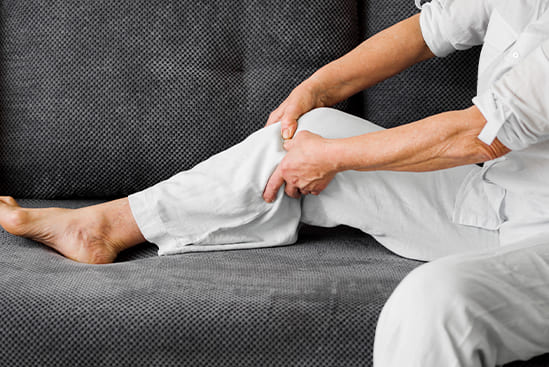
Osteoarthritis & Rheumatism, Pre-Post-Surgical Conditions, Synapse Physiotherapy
Introduction
Acute back pain is one of the most common physical complaints among Malaysians. Whether caused by poor posture, sudden injury, or lifting something the wrong way, it can interrupt daily life and make even simple movements difficult. In recent years, many people have turned to Physiotherapy Malaysia services for a safer, more effective approach to recovery one that doesn’t rely on painkillers or invasive procedures.
Physiotherapy focuses on treating the source of pain rather than just covering the symptoms. It combines hands-on therapy, guided exercise, and practical advice to help people heal and prevent future injury. Clinics across Malaysia now offer advanced treatment methods and personalised care to support faster and long-lasting recovery from acute back pain.
Understanding Acute Back Pain
Acute back pain is short-term pain that usually lasts for less than six weeks. It often results from a specific event such as lifting something heavy, twisting awkwardly, or sitting in one position for too long. While some cases may improve with rest and time, others can become more serious without proper treatment.
The pain may be sharp or stabbing and is often felt in the lower back. It might also cause stiffness, limited movement, and difficulty standing or walking. When left untreated, acute pain can develop into chronic discomfort that becomes harder to manage.
That’s why early intervention is important. Seeking professional help through Physiotherapy Malaysia ensures the pain is not only managed but also prevented from returning. You can learn more about the different types of conditions treated through physiotherapy by visiting Synapse’s conditions page.
How Physiotherapy Addresses Back Pain
When you visit a physiotherapy clinic in Malaysia, the first step is usually a full physical assessment. This helps the physiotherapist understand the cause of the pain, how it affects your movement, and what might be contributing to the problem. Some clinics also collaborate with imaging centres or orthopaedic specialists for a more accurate diagnosis when needed.
Accurate Assessment and Diagnosis
A detailed assessment is essential for building an effective treatment plan. Physiotherapists will evaluate your posture, joint movement, muscle strength, and flexibility. This process helps identify whether the pain is related to muscle strain, joint stiffness, or poor alignment.
Pain Relief and Manual Therapy
In the early stages, the main goal is to reduce pain and ease inflammation. This might involve heat or cold therapy, ultrasound, or TENS (transcutaneous electrical nerve stimulation). These methods help calm the affected area and prepare your body for more active treatment.
Manual therapy is often part of the treatment as well. Using techniques such as joint mobilisation and soft tissue massage, your physiotherapist can relieve muscle tension, improve alignment, and restore movement in the spine.
Exercise and Movement Therapy
Once the pain starts to improve, your physiotherapist will guide you through a personalised exercise programme. These exercises are designed to strengthen your core, improve your posture, and restore normal function. Common movements include gentle stretches, balance work, and activities that mimic everyday tasks like bending or lifting.
Physiotherapists from Synapse Rehab Centre offer targeted spine and core rehabilitation programmes that help build long-term strength and prevent the pain from returning.
Education and Prevention Strategies
One of the key benefits of physiotherapy is the focus on education. You’ll learn how to avoid movements or habits that could cause your pain to return. This may include advice on your sitting posture, lifting techniques, or how to set up your work desk more ergonomically.
These practical tips are especially helpful in a country like Malaysia, where long hours at a desk or behind the wheel are common. By learning how to move safely and protect your back, you’ll not only recover faster but also stay pain-free for longer.
What Makes Physiotherapy in Malaysia a Reliable Option
As awareness of holistic and non-invasive care grows, more people are turning to Physiotherapy Malaysia to manage back pain. Clinics in cities like Kuala Lumpur, Penang, and Johor Bahru, as well as smaller towns, now offer modern equipment and trained professionals who provide personalised care to suit each patient’s condition.
Your experience typically begins with an initial consultation and assessment, followed by hands-on treatment and exercise sessions. Progress is monitored closely, and your physiotherapist will adjust your plan as needed. Clinics such as Synapse Physiotherapy Centre are known for their patient-centred approach and commitment to quality care.
Benefits of Physiotherapy for Acute Back Pain
The advantages of using physiotherapy to treat back pain are many. It offers a drug-free, non-invasive approach that focuses on long-term healing. Every treatment is tailored to your needs, helping you recover safely and effectively. Most importantly, it gives you the tools and knowledge to manage your health independently.
Patients often report faster recovery, better posture, and improved movement after a full course of treatment. With ongoing support from a qualified physiotherapist, you’ll also reduce your chances of experiencing similar problems in the future.
To explore more ways physiotherapy supports recovery, visit the Synapse page on Pain Management.
Frequently Asked Questions (FAQs)
1. How long should I wait before seeing a physiotherapist for back pain?
If your back pain doesn’t improve within a few days, or if it’s severe from the beginning, it’s best to see a physiotherapist sooner rather than later. Early treatment leads to quicker results.
2. Can physiotherapy prevent future back pain?
Yes. Physiotherapy doesn’t just treat current painit also strengthens your body and teaches you how to avoid future injuries.
3. Is physiotherapy safe for all ages?
Absolutely. Treatment is adapted to each person’s age, health status, and activity level. It’s suitable for everyone, including seniors.
4. Will I need to continue exercising at home?
Yes. Home exercises are often part of your recovery plan and help speed up progress. Your physiotherapist will guide you on what to do and how often.
5. Do I need a referral to start physiotherapy in Malaysia?
In most cases, you can book directly with a clinic. Some clinics may work with doctors or offer home visits for added convenience.
Final Thoughts
Acute back pain can happen to anyone, but you don’t have to let it affect your life for long. Physiotherapy Malaysia offers effective, customised solutions that treat the root cause of your pain and help you feel like yourself again. With expert care, you can return to work, sport, or daily routines more confidently and with less risk of future injury.
If you’re ready to take the next step toward recovery, reach out to a trusted physiotherapy provider near you. A visit to the right clinic could be the beginning of a healthier, pain-free life.
Tags :

Back & Neck Pain
Conditions such as stiffness, postural abnormalities and muscle overuse from prolonged desk work at the office or home is more prevalent than most would think. We provide the necessary tools to fix you up and educate you on ergonomics which can unload unnecessary stress.
- Spine & Core Rehabilitation
- Strength & Conditioning Programme
- Pain Management
- Biomechanical Assessment
- Sports Physiotherapy
- Group Class

Sports Injuries
Rolled ankles, jarred knees, impinged shoulders are few conditions in the plethora of sports injuries which can hamper performance and limit our enjoyment of sports. Physiotherapy not only treats the symptoms of these conditions but propels your overall fitness to greater heights.
- Strength & Conditioning Programme
- Pain Management
- Biomechanical Assessment
- Sports Physiotherapy
- Shockwave Therapy
- Group Class

Work Desk Injuries
Conditions such as stiffness, postural abnormalities and muscle overuse from prolonged desk work at the office or home is more prevalent than most would think. We provide the necessary tools to fix you up and educate you on ergonomics which can unload unnecessary stress.

Pre-Post-Surgical Conditions
Surgery involves going through preparation both before and after. Physiotherapists play a vital role in getting your body ready for surgeries with circulatory, breathing and strengthening exercises. After the procedure, let us be there for your recovery and rehabilitation, taking it one step at a time.

Scoliosis & Postural Abnormalities
The way we stand, sit, walk and sleep has influence over our posture and the overall balance of muscles controlling its alignment. A comprehensive screening can be done by our physiotherapists to detect abnormalities, which we will aid in correcting.

Neurological Conditions
Neurological disabilities such as stroke, nerve compression and neuropathies can be barriers for patients to live life to its fullest. We at Synapse are committed to help you overcome these hurdles by ensuring functional mobility and quality of life is at its optimum by providing the right treatment and exercises.

Osteoarthritis & Rheumatism
Joint degeneration and inflammation happens as the human body grows older, but that does not mean our way of life degenerates as well. Relief your joint pains with a joint effort together with your physiotherapist, who will provide pain-relief treatments and prescribe exercises for your wellbeing.

Conditions Relating To Elderly
Common conditions in the older age population include hips & knee pain, back & neck pain, osteoarthritis, rheumatism, fear of falling and many more. Aging and degeneration of bodily function is inevitable, but here at Synapse, we will help you live the best of your life.

Home Physiotherapy
We understand that some conditions or injuries can make it difficult to receive rehabilitation at our clinic be it mobility or transportation issues. Our objective is to provide you with the same high-quality physiotherapy services at home that you would receive in-clinic.
